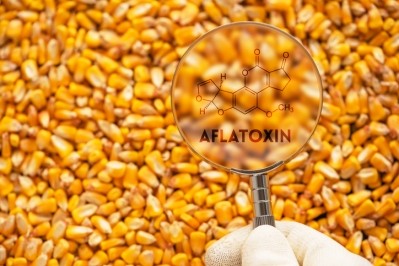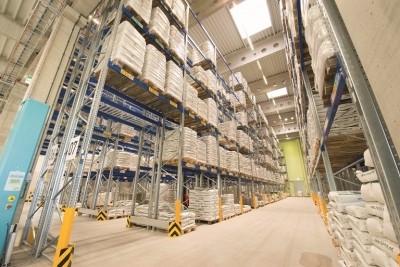Dispatches from World Nutrition Forum in Cape Town
‘Mycotoxin contamination of crops will only get worse with climate change’
“We have done experiments [in controlled chambers to mimic wet and drought conditions and then get the data] where we have demonstrated there is a stimulation of aflatoxin production in maize, for example, when you expose it to climate change versus existing conditions.
“And it doesn’t matter whether it is GM or non-GM maize. We have done studies with both and we have similar results,” Professor Naresh Magan, professor of applied mycology, Cranfield Soil and Agrifood Institute, Cranfield University in the UK, told FeedNavigator.
He was speaking on this topic at Biomin’s World Nutrition Forum in Cape Town earlier this month.
There is a growing interest worldwide in both determining and trying to offset the potential impacts of climate change factors on agronomy of cereals and potential impacts on mycotoxin contamination of food and feed.
Magan said data from other research groups such as work done by a US Department of Agriculture (USDA) team, located in Peoria, Illinois, looking at the impact of high CO2 levels and drought stress on the development of fumonisins, backs up his team’s findings.
“There is a pattern there, that maybe under some conditions, under these combined [environmental] stresses, we may be exacerbating the situation, and getting a higher level of mycotoxin contamination and that could have an impact downstream on both food and feed chains.”
Resilience of mycotoxin control systems
He questioned whether global control systems would be resilient enough under extreme environmental stresses to minimize mycotoxins.
“Our preservation systems, our approach to mycotoxin control may need to change. When looking at the resilience of the molds involved in mycotoxin production, they may evolve faster under climate change conditions and be more resilient than the crops.”
He also warned of the potential worsening levels of plant stress and pest/fungal infection because of climate change, along with a reduction in feed crop yields.
Legislation may be out of step with what happens in the next 10 years, he added.
“A lot of molds produce more than one toxin and [with the impact of climate change] there may be a switch from one toxin to another. Maybe some other toxins will become more important, and we are not ready for that, with legislation only focusing on one toxin. These are things we need to address from both a food security and sustainability perspective.”
His team also has another project, in combination with a team based at the University College Dublin (UCD), funded by UK and the Science Foundation Ireland money, looking at oats and T-2/HT-2 toxin and climate change. “We are trying to identify resistant cultivars from an historical oat cultivar collection in Ireland that are more resistant than the ones now to the T-2/HT-2 toxin for which the EU has legislation.”
They may look to identify similar resistant cultivars for other cereals as well.















